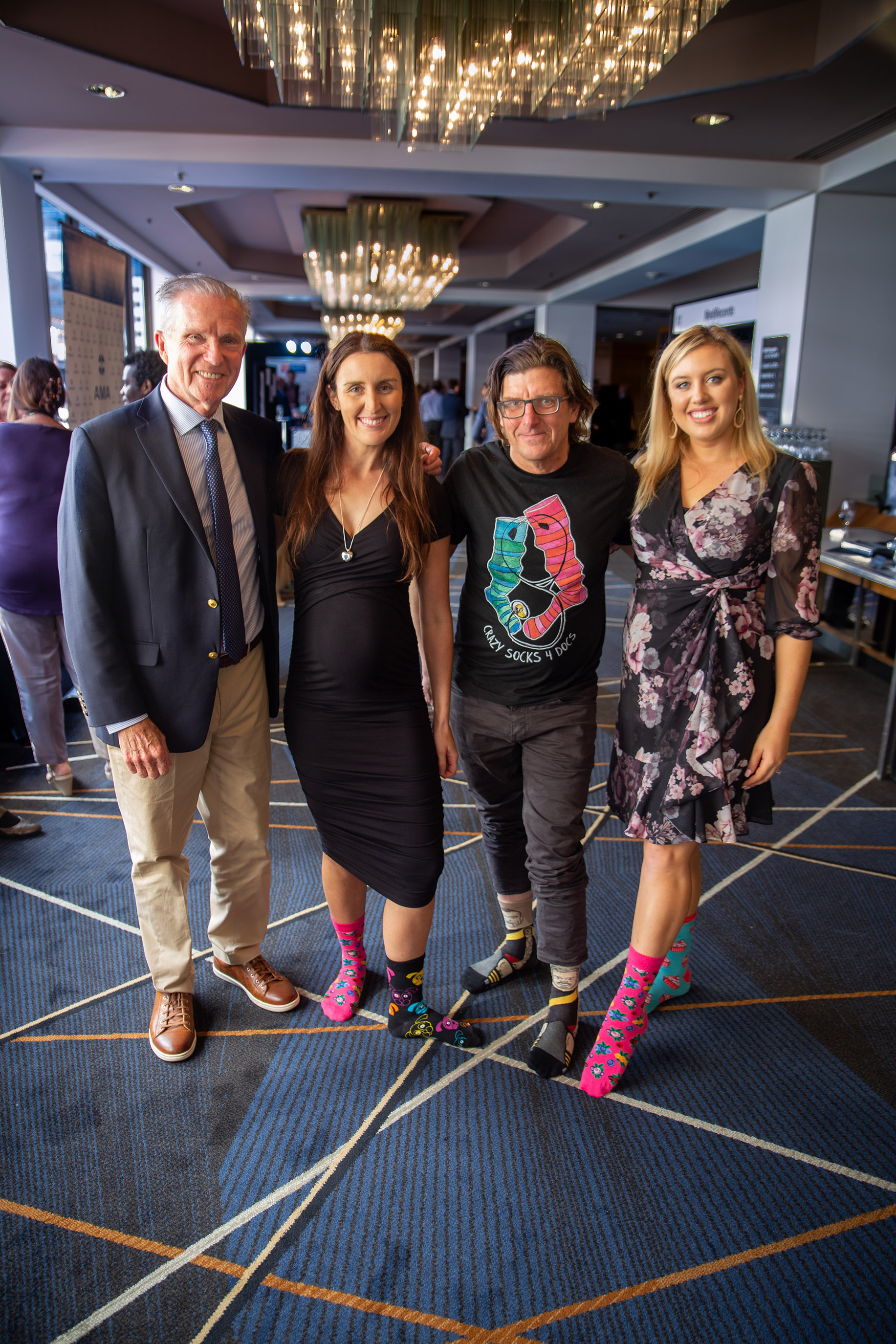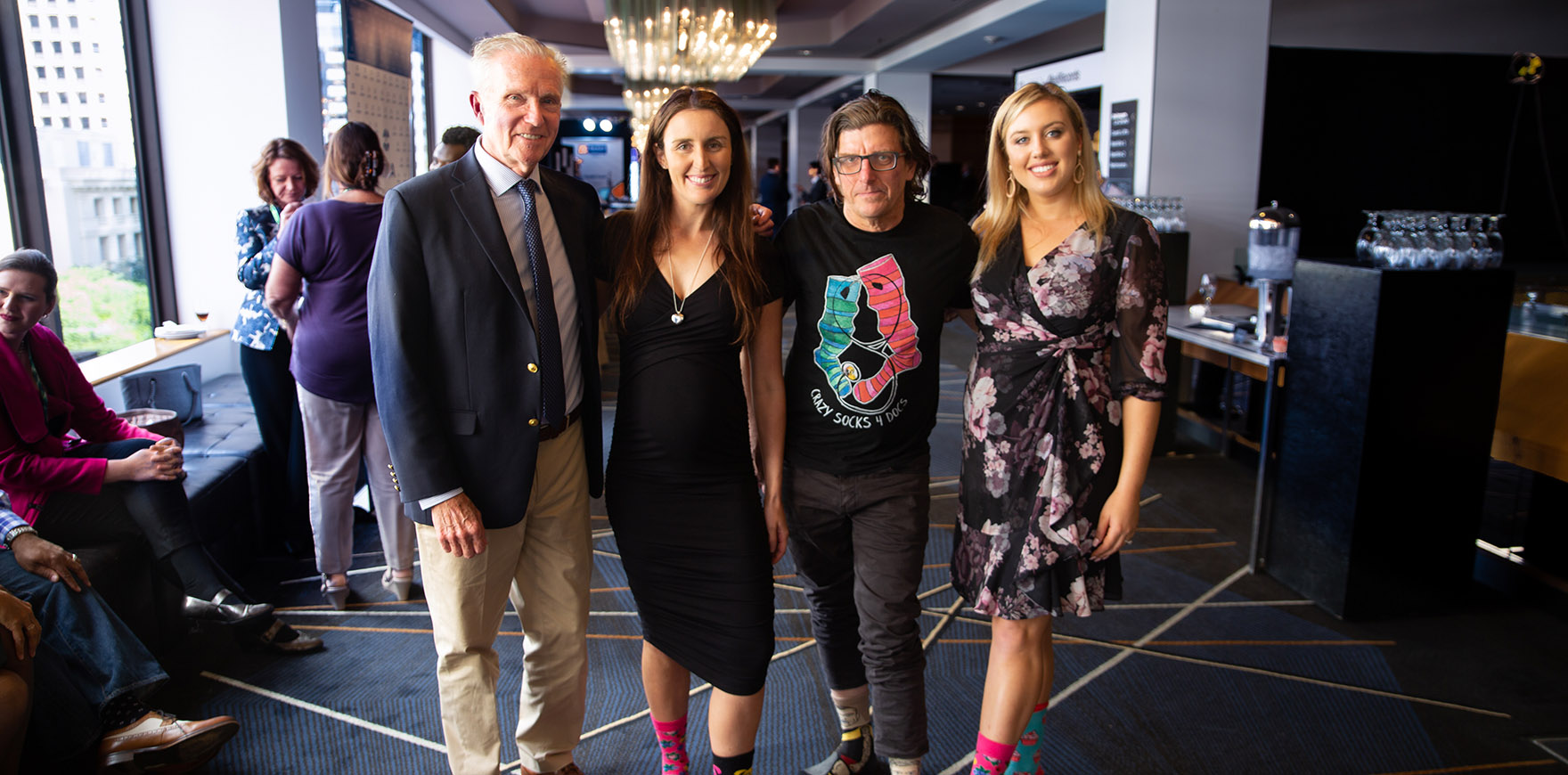Doctors who have lost colleagues to suicide are demanding that the medical profession make serious structural and cultural changes
Pink, orange, and blue socks – mismatched to maximise the visual clash – were out in force at the AMA conference in Brisbane on Friday.
The #crazysocks4docs advocates had a serious message to send the medical profession: real cultural and structural change is urgently needed to prevent doctor suicide.
“A huge component of prevention is addressing these modifiable stresses,” said Dr Jessica Dean, an intensive care trainee and former AMSA president, in an address to the conference.
“They are appropriate rostering, access to sick leave and other leave entitlements, flexible working conditions, appropriate staffing and appropriate workloads. It isn’t rocket science. We now know exactly what has to be done. We just need to do it.”
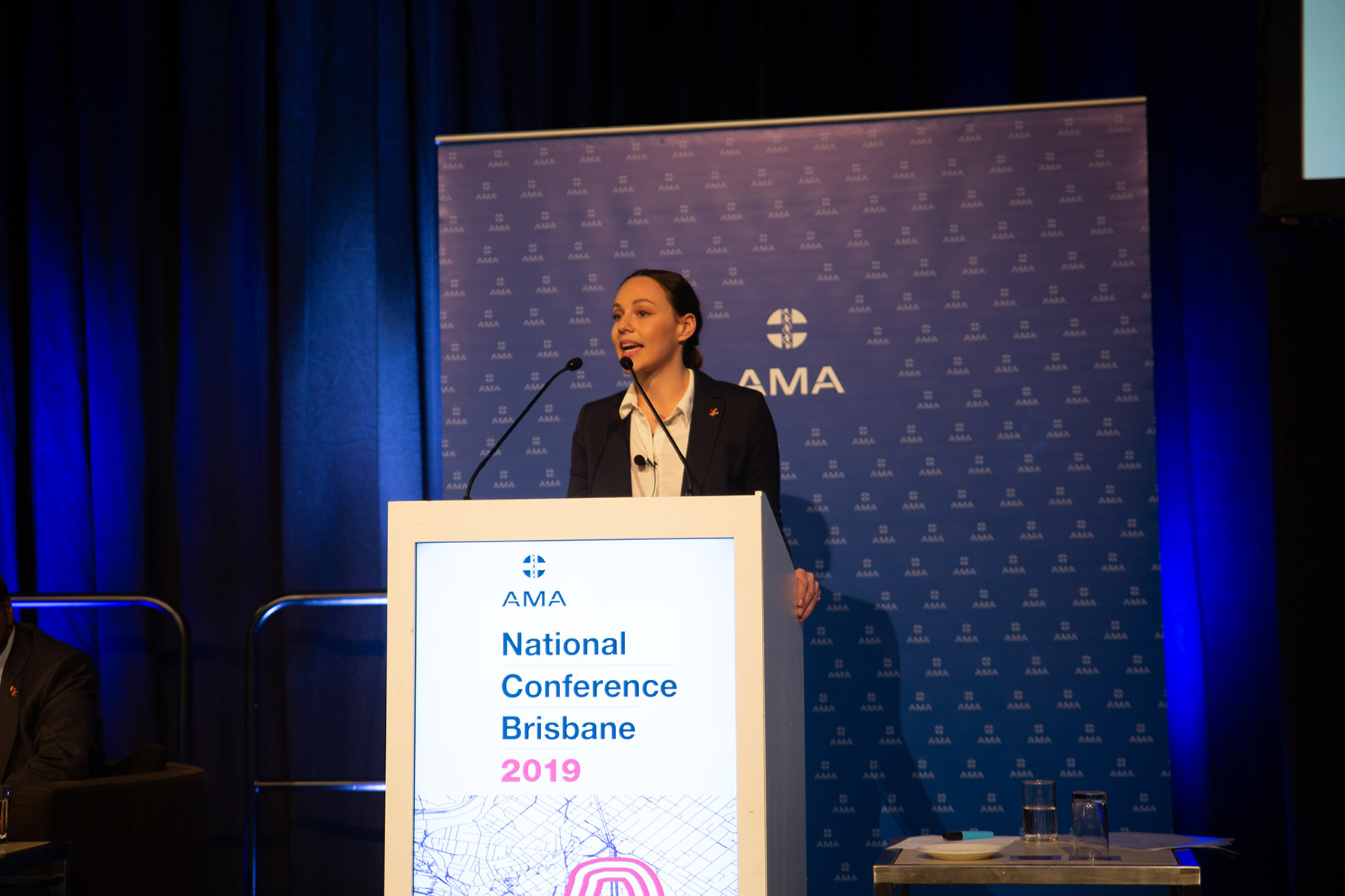
Pilots spend 50% of their time resting on long-haul flights, she said. “We are still trying to stamp out the 16-hour shift [at hospitals]. Why do we think we are invincible to fatigue?”
Sitting in the front row at the AMA conference were Micaela and Jessica Abbott, the sisters of Chloe Abbott, a 29-year old junior doctor at St Vincent’s Hospital who died by suicide in 2017.
“When Chloe took her life, it was really close to heart to this organisation,” said former AMA President Dr Mukesh Haikerwal.
“And a lot of the action that we’ve seen has been driven by that. This family has actually changed the language, has changed the dialogue so that we are now talking about [doctor suicide].”
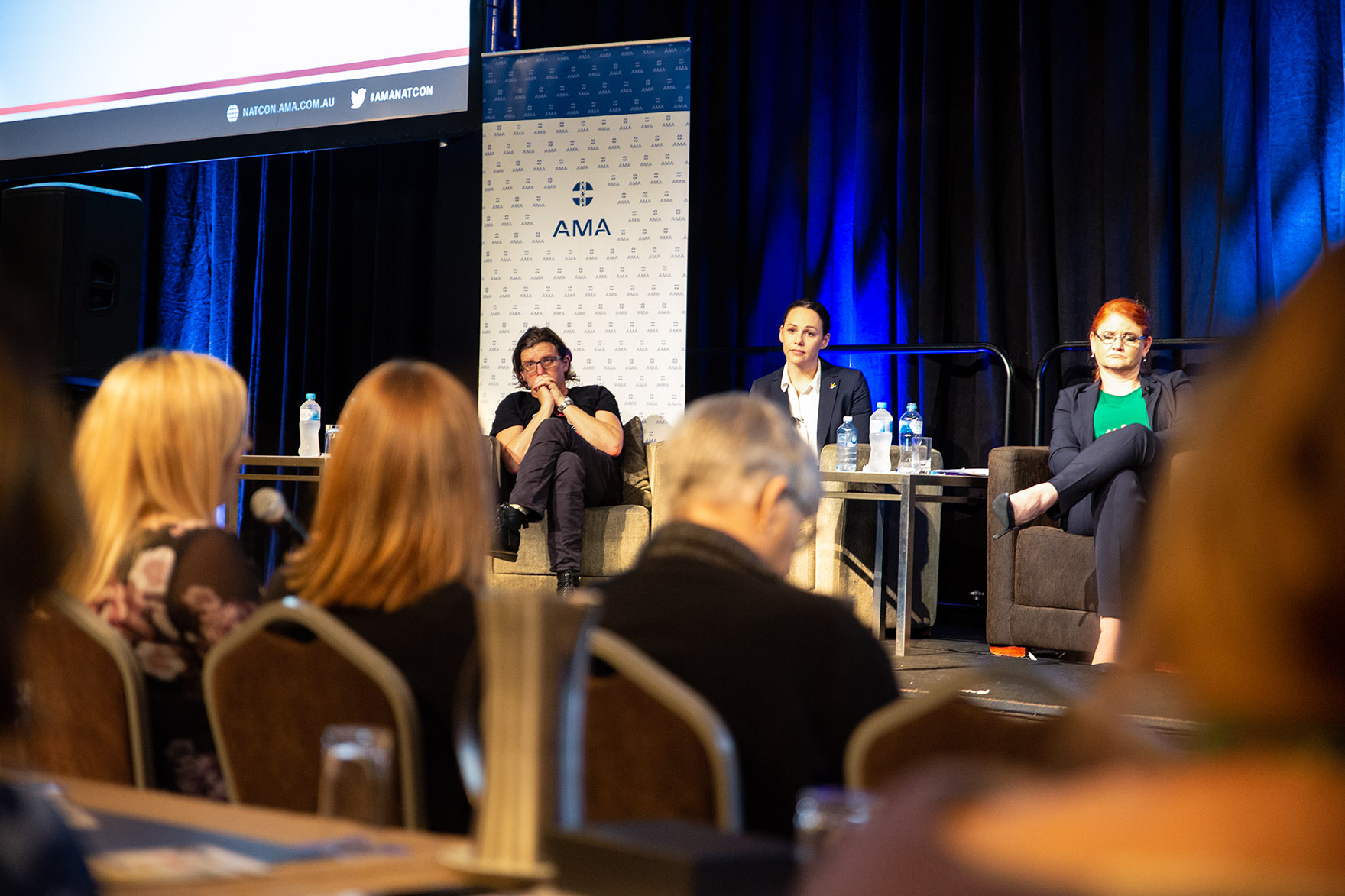
“Thank you so much for having us here,” said Micaela Abbott, addressing the conference. “I have just been sitting listening to this just in awe of everyone’s absolute commitment and dedication to this issue.”
The founder of #crazysocks4docs, cardiologist Dr Geoff Toogood, spoke about stigma and vulnerability.
“The first time I walked into a psychiatric consultation I sat behind a magazine because I feared being seen,” he said.
“I didn’t want people to know that, as a doctor, I’d failed.
“Many colleagues suggested after 15 years or 20 years of clinical practice that perhaps he wasn’t cut out for this job. I should try something else. Or I wasn’t resilient enough, I wasn’t strong enough.
“I thought when I was actually ill and suicidal and not coping that I was the only doctor in the hospital who was like that. But I’ve come to realise, that’s not true.”
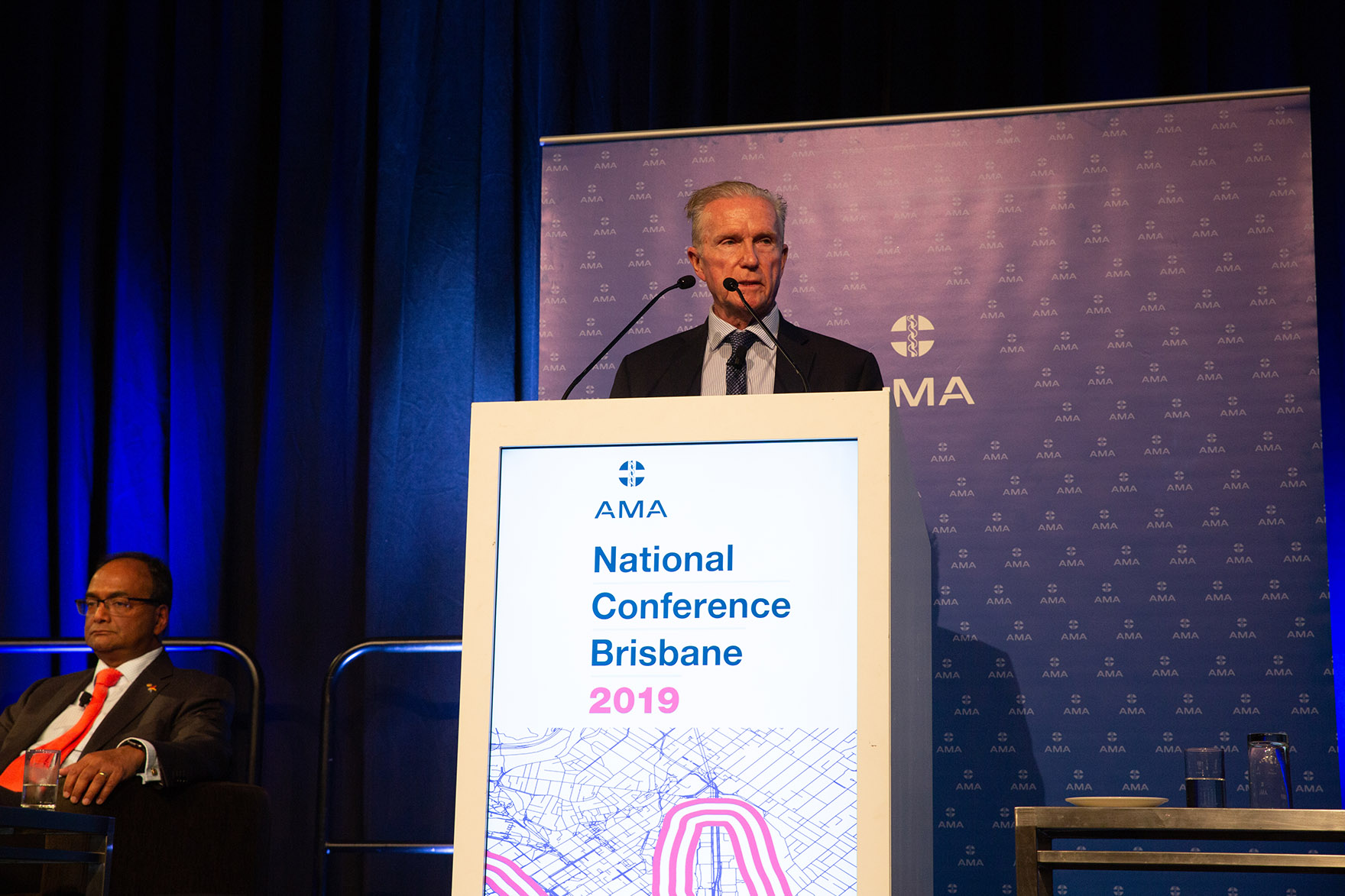
Professor Michael Myers, a psychiatrist and author from New York, explained why it was often so hard for some doctors to ask for help.
“Physicians are notorious for beating themselves up for becoming ill,” he said. “When I talk to my doctor-patients about why they don’t have a GP often the first response is – and they say this somewhat laughingly – ‘Oh, I don’t really trust other doctors’. It is said in jest, but I think there’s a little bit in earnest there.
“There’s an inability to accept the patient role. And then there’s hypertrophied altruism – that we give so much to others that we just don’t take care of ourselves. And I say of this without judgment.”
To maintain absolute confidentiality, mental health services for doctors could offer after hours care, in a discrete location with no signage, with at least 15-minutes between appointments, said Melbourne-based psychiatrist Dr Helen Shultz.
